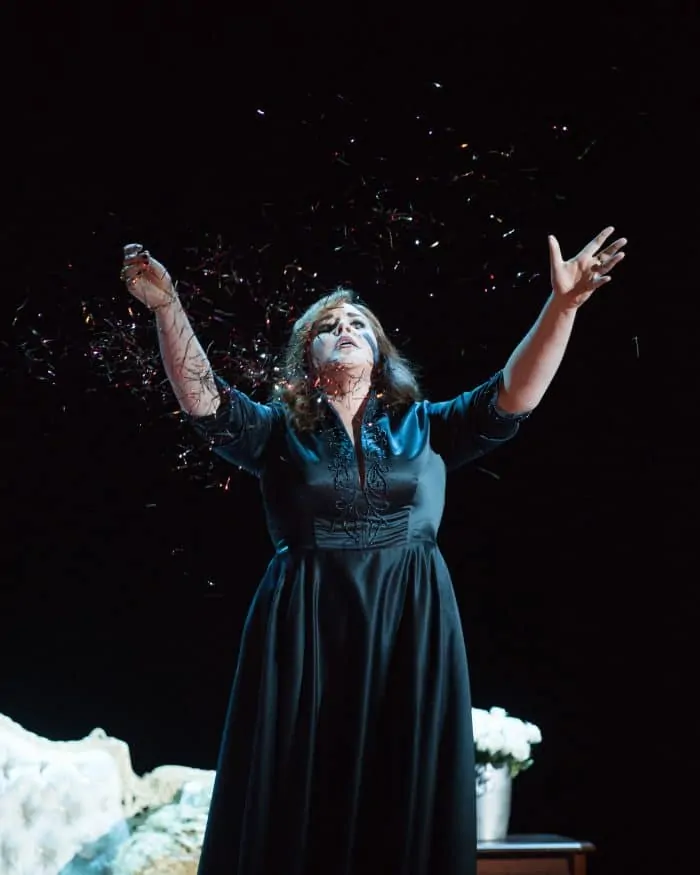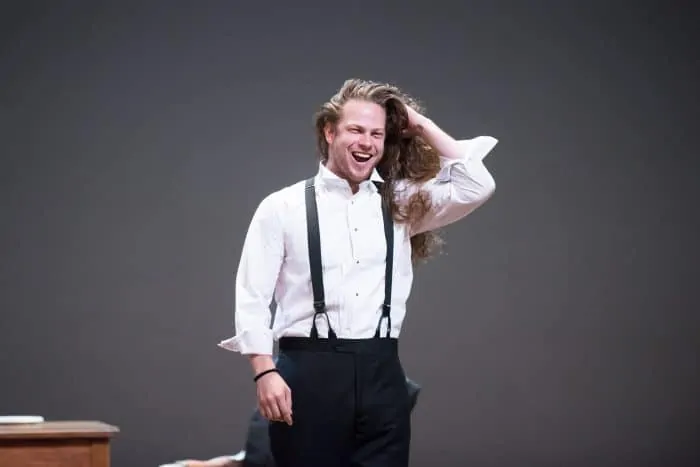San Francisco’s Merola Opera Program is one of the most prestigious training programs in the world for young singers. Its participants can already boast of long singing resumes and top awards, and its alumni include superstars like Anna Netrebko, Joyce DiDonato, and Thomas Hampson. The extraordinary talent displayed at the Merola Grand Finale on August 20th makes me sure that many of this summer’s artists will achieve stardom as well.

The concert was a collection of unconnected scenes and arias, cleverly given a unified setting by director Aria Umezawa. As the orchestra played the overture from Die Fledermaus, the Merolini gathered onstage with champagne and smiles. But it soon became clear that this was a party with lots of drama. A couple walking off together prompted an aria about heartbreak; another couple got engaged in a buoyant duet. This continuity sometimes led to funny contrasts: the bumbling lover from Martha, glimpsed by Donna Anna as he exited after his scene, served as the rapist Don Giovanni in her tale.
… it soon became clear that this was a party with lots of drama.
Among a lineup of singers who all showed great dramatic and vocal ability, the first standout was mezzo-soprano Tara Curtis singing “Les Grecs ont disparu! …Malheureux roi! Dans l’éternelle nuit” from Berlioz’s Les Troyens in a superb voice with huge power and precise control. I was also impressed by tenor Boris Van Druff’s “Se all’impero” from Mozart’s La clemenza di Tito: his voice had an unusual and pleasant timbre, and he easily handled coloratura that trips up many Titos in professional productions. Amitai Pati and Andrew G. Manea ended the first half of the program with “Au fond du temple saint.” Pati’s edgy tenor and Manea’s gravelly baritone proved a surprisingly good combination.

The musical highlight of the evening was a duet from Donizetti’s Anna Bolena, sung by soprano Mary Evelyn Hangley and mezzo Taylor Raven. Both have very polished voices. Hangley showed stunning dynamic range and control, while Raven made the house ring with her rich, resonant sound. The best drama came from Cody Quattlebaum’s rendition of “There’s a law” from Bernstein’s Trouble in Tahiti. He has that elusive characteristic (charisma? presence?) that turns a performance into a conversation. Plus, he sports a smooth baritone, perfect diction, and a striking mane of hair.
At the end of the concert, we returned to Die Fledermaus for “Brüderlein, Brüderlein und Schwesterlein,” a beautiful ensemble of camaraderie. A slideshow of moments from the artists’ summer in San Francisco appeared on the back wall of the stage. It was a cute ending to a successful concert and to twelve weeks of hard work. After the final bows (and an instant standing ovation), the singers emerged for wine, food, and well-deserved congratulations from the audience.

